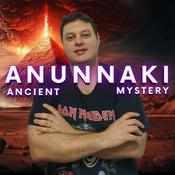The Sumerian King List, among the oldest written records, challenges mainstream history by presenting an alternative origin of civilization. Found in ancient Mesopotamian cities like Larsa, Nippur, and Shuruppak, and preserved in museums such as the Ashmolean Museum in Oxford, it documents rulers over thousands of years. The most complete copy, the Weld-Blundell Prism, intriguingly starts with 'kingship descended from heaven.' A global flood marks a division between two eras—long-reigning beings and recognizable human rulers.
Pre-flood rulers, like Alulim of Eridu, are said to have governed for tens of thousands of years, until a flood ushers in a new era of shorter reigns. This shift suggests a change in power dynamics. The King List maintains an administrative tone, indicating it was meant as a historical record. Similar themes appear in ancient Egypt, early China, and Mesoamerica, suggesting extraterrestrial influences in early development. The Anunnaki, beings from the heavens, are credited with introducing kingship and knowledge.
In southern Mesopotamia, civilization emerged rapidly post-flood, with advanced systems in writing, mathematics, astronomy, legal codes, and architecture. These innovations suggest a restoration of lost systems rather than gradual development. Archaeological evidence confirms some rulers, like Enmebaragesi and Gilgamesh, bridging myth and history. Rebuilt temples and cities imply retained knowledge, supporting the King List’s claim of resumed kingship under mortal rule, with original beings absent.
Despite its significance, the King List is seldom discussed publicly, possibly due to discomfort with its implications. It suggests a guided start to recorded history, challenging linear human progress narratives.
Disclaimer: This episode offers an interpretive analysis inspired by ancient mythology, historical texts, and alternative theories, not representing established consensus.
#SumerianKingList #ancientMesopotamia #Weld-BlundellPrism #AlulimofEridu #Anunnaki #extraterrestrialinfluence #civilizationorigin #ancientEgypt #archaeology
See show notes: https://inlet.fm/anunnaki/episodes/697a4ea77a69233d65ebda42
Learn more about your ad choices. Visit podcastchoices.com/adchoices



